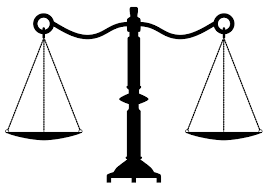What Do I Need to Prove in a Nova Scotia Medical Malpractice Case?

Doctors and nurses in Nova Scotia make mistakes. After all, they are only human. Fortunately, many of those mistakes don’t result in serious harm to the patient. But sometimes serious harms and injuries result from these medical errors.
Where a patient is left in a worse state of health after being treated by a doctor or hospital, he or she may be wondering whether a medical malpractice claim may be a viable means of receiving compensation.
At the outset it is important to appreciate that all Nova Scotia doctors are insured by an entity called the CMPA (“the Canadian Medical Protective Association”). Where a patient alleges medical malpractice, it is the CMPA that will respond and defend the doctor. They are notorious in Canadian legal circles for putting up vigorous defences; where they spare no costs on lawyers and medical experts in support of the doctor. There are no easy, or quick settlements. The CMPA will put the injured plaintiff to the strict onus of proof in each and every case. What does this mean?
To receive compensation in a medical malpractice case, the patient must prove each of the following three elements:
1. Breach of the Standard of Care – each medical professional has certain standards applicable to his or her specialty. Those standards dictate how they ought to treat a patient in a particular situation. For example, if a patient comes in complaining of a sudden, severe headache, with nausea, the standard of care would typically require the doctor to immediately order tests to rule out a brain hemorrhage. Were that doctor to simply recommend Tylenol and send the patient on his way, that likely wouldn’t meet the standard of care. A doctor is considered negligent for not meeting the standard of care.
It is very important to understand that, in order to win a medical malpractice claim, the patient must find a medical professional of a comparable specialty of the defendant doctor to give an opinion on the applicable standard of care, and to opinion that it was breached in the patient’s case. Without this kind of supportive expert opinion, it is impossible to win a medical malpractice case.
2. An Injury – It isn’t enough to show that a doctor was negligent. A patient must also prove that he or she suffered a compensable injury. While this element may seem obvious, many patients seek to bring a medical malpractice claim based on negligence alone, especially where that negligence almost caused an injury. It’s important to understand that medical malpractice cases cannot be successfully brought for “near misses” or “almost injured” (even if the doctor was otherwise entirely negligent).
3. Causation – if a patient is medically worse off after receiving treatment from a doctor (i.e. has an injury), he or she has to prove that the injury resulted from the doctor’s negligence. It isn’t enough to prove that you’re worse off after care. This is because most medical care always carries with it some degree of risk. This is especially the case for surgical procedures. There is no guarantee of a successful outcome and some patients will be worse off after a procedure even if their doctor did everything correctly.
As with proving a breach of standard of care, proving causation must be done with the help of a qualified medical expert. To be successful, this expert has to give the opinion that “but for” the doctor’s negligence, the patient likely wouldn’t have suffered the injury or harm. Because the human body is complex, causation does not have to be proved with scientific certainty in a medical malpractice case. It is enough if the supporting expert believes it to be “likely” that the injury was caused by the negligence (even if a fair bit of doubt, or alternative explanations, exist).
The medical malpractice lawyers at Valent Legal have significant experience in helping patients injured by medical malpractice prove their case with medical experts to get the compensation they deserve. If you have questions about a possible medical malpractice case, please reach out to us today.






















